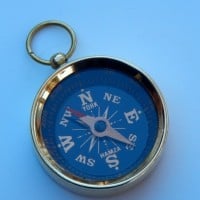Top 10 Ways to Survive in a World War
In case if there's another World War. 2020s couldn't be worse. This is Top 10 Ways to Survive in a World War. Combined, these can keep you safe throughout the war.This is the best way to survive the war. Unless you're in the armed forces, avoid it. If someone invaded your places, avoid any interaction. Don't come close to them. Defend yourself if you have to. Have a weapon will be good. You need to learn how to use it. Other than guns, knives, bats, pepper spray, baton is good too. It will be better to fight in a group than alone. You have a better chance to win. Ready to run away if you can't fight them and they are attack you. Run to another place where they can't find you.
This is a very useful list that I can plan for someday if I hear a major problem by a country/continent from another, and that they fail to connect. So it is better to pack up (survival kits are the best case) and go to rural areas. I am impressed that it should be more than Featured and I'm very sure that this will be on top of the best TheTopTens lists of February 2022 (I didn't create last month's because there were too much best/worst of 2021/2022 lists or it just got complicated.
Big cities like London, Tokyo and Paris is the most dangerous place to be in a war. Go to rural areas, village or small town. It is because the fight is often happens at big cities and place with high populations. If you can go to other countries that is safer, go. This could be a country in Oceania, Africa or Asia (only some places). Most global superpower with nuclear weapon and dangerous weapon are in the north. South is the safest place. Countries like New Zealand, Australia and Argentina is the safest. If you have a good amount of supplies and shelter, you can go to Antarctica. It was the site of the world's first nuclear arms agreement in 1959. The Antarctic Treaty banned the detonation of all nuclear weapons. But it will be hard. Another safe place is Easter Island, 2000 miles from South America (if you have a good amount of supplies). Always ready to fleeing to other places.
Make a kit as soon as possible after the war started. Knowing what to put in your survival kits is important. Put as many supplies as you can. You need to put food (non-perishable), water, battery powered radio, flashlight, first aid kits, clothes (for winter and summer), medicine, knife, multitool, outdoor water purifier, waterproof match, fire lighter, hygiene items, baby supplies (if you have babies), pet supplies (if you have one), whistle, backpack, batteries, etc. It's better if you bring food you can eat without cooking it. It will be easier if there's no electricity. Bring canned foods, cookies, snacks, pasta, rice and beans. Darkness will be dangerous, especially if you are in the jungle. To avoid injuring yourself bring a flashlight. Don't forget a spare battery If your radio need batteries, bring one for it. Long sleeved clothes provides more protection than short sleeved. Put your survival kits in a place that is easy to access. If you have seeds, bring it.
Water is one of the most important things for human. Finding a clean water source during the war will be hard. You need to search for a water source before the stored drinkable water gone. You should prepare an outdoor water purifier. It will be easier to survive. Remember, clear water doesn't mean drinkable. Most groundwater and rainwater are safe. The safest choice is running water. Faster is better. Water is cleaner the closer you get to its source. Don't drink salt water. Remember to purify the water. You also need to preserve the water for emergency. If you don't have a water purifier, learn to make water purifier. If there's a mountain nearby, look at the foot of the cliffs. If there's mosquitoes and flies, there is water nearby.
It is important for treat injuries or illness. It's important to know where you put your kits. Put your kits at the places where you can easily access it. Have more than one kits would be better since it will be easier to access. Your kits should at least contain medicine, alcohol wipes, antiseptic hand cleanser, adhesive bandages, adhesive cloth tape, a guide, oral thermometer, adhesive tape, anesthetic spray, antibiotic cream, gloves, safety pins, scissors, ice packs, rubbing alcohol, tweezers, etc. You can learn how to use them on the guide or the Internet. Other than first aid kits, hygiene supplies are important to prevent infection. Put together a hygiene kit will help you take care of your body needs while also preventing infectious diseases. Hygiene kits include soap, toilet paper, feminine product, diapers, etc.
You must stay away from fighting places. It's very likely that there's a bomb or landmines that can injure or kill you. If there's an unusual thing, don't touch it. You can use first aid kits to treat small injuries. Wash your wounds with clean water. Cover it with bandages. CPR is important too. Remember to clean yourself with water. It is important to avoid any infection. Remember to purify any water that isn't bottled. If you don't have a water purifier, you can also boil it. Boiling the water for 10 minutes will kill any pathogens that are in it.
Brick building would be the best types of building to protect yourself. If there's a basement, go to the basement. Basement is a safer place. If there's an attack, go to a building only if you sure the building you're in can provide you protection. It depends on the construction of the building and how close you are to the attack. Stay away from windows and exterior door. Go to a room without windows will be safer. It is because bombs will blow any windows. Stay away from flammable things because it will ignite from the bomb heat. After the attack, stay inside. If you flee from the city to the woods, protect yourself by making a shelter. Do it as soon a possible to avoid any problem. Make sure the location of the shelter is good. You can learn to make a shelter in YouTube.
The information about the war is really important to survive. You will know which areas are safe or dangerous. If you can use social media, do it. Social media are one of the most reliable source for news. Just make sure that the news is true. If you don't have social media or a phone, use battery powered radio. You can also ask any people you meet about any news. But this can be dangerous.
In WW2, countries that didn't participate in the war still face food shortages. If you didn't have any foods, you can hunt or fish. You might want to bring the equipment with you. You can also make a trap. The easiest way to find a food is by eating insects. Insects are easy to catch and kill and have a good amounts of protein and fats that will help you survive. You can check under the logs. You can eat most insects, but avoid spiders and flies. Remember, only eat them when they die. Insects with hard shells should be cooked before eat. Other than insects, you can eat berries and mushroom. If you want to eat berries, stick to berries that you recognized. Don't eat white berries since most of it are toxic. If you want to eat mushrooms, look for wild mushrooms near dark and damp areas or on dying trees in the woods. Be careful because if you eat the wrong mushroom, you could become ill and die. If you're not sure about whether or not a mushroom is safe to eat, don't eat it. There are lots of wild plants in the woods that you can eat, but you need to make sure you're eating ones that aren't toxic. If you're not sure what plant you're picking, don't eat it. Remember to wash the plants before eating. Hunt small animal than large animal. Large animals are harder to kill. It can potentially injure you if you fail to kill it.

The one thing we all can't live without these days are our mobile phones, but if civilization collapsed, they will not be much use at all. However, there is one feature on your mobile that will continue working for at least a couple of months, and that's GPS. If the satellites are abadoned, we can use it for a few months. The map function will continue working as it relies on satellite signals and not the mobile phone network. One thing that doesn't rely on modern technology is compass.
